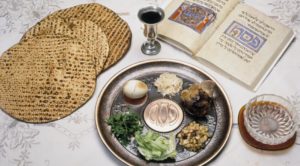
This Shabbat we read Parshat Beha’alotcha. At the heart of the Torah, reading is the explanation of Pesach Sheni (or Second Passover). You may be asking yourselves, wait – we have to do that a second time? When the Temple stood, there were many reasons that people may not have been able to make it to Jerusalem to offer the Passover sacrifice. Regardless of the reason, Judaism created a make-up date, 14 Iyyar (one full month after Passover 14 Nissan) or Pesach Sheni, a second chance to bring the offering. Interestingly this “second-chance” only exists for Passover, the commandment to hear the Shofar on Rosh Hashanah has no make-up date, the mitzvah of reading the Megillah on Purim has no second chances, you cannot build your sukkah in May when the weather is perhaps more conducive to being outside – so why does Passover, the holy day that celebrates our national freedom, have a make-up day, ?
The sages understand that the reason the “make-up” date becomes law is that the people themselves requested it. In Numbers 9:6, we learn that a number of men and women approached Moses and explained that they were taking care of a dead body, preparing the individual for burial at the time of Passover. At the time of the Temple, being in contact with a dead body, made one impure and unable to take part in the Passover offering. They wanted to know if there was any leeway to participate in the Passover offering since they were taking part in another time-sensitive mitzvah. Interestingly Moses hears the people out and asks for time to speak with God about their request. It would appear that because of their sincerity and their passion, God grants the people this exemption and marks the 14th of Iyyar as Pesach Sheni, an official date on the calendar.
A year prior the Israelites earned their freedom from physical abuse at the hands of Pharoah, with Pesach Sheni they learned that true freedom is having the ability to question authority, even at the highest levels.
Leave a Reply